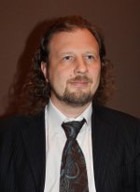Hyundai Plant in St Petersburg To Reduce Production by 15%
Hyundai plans to reduce annual production by 15% at its St Petersburg plant, according to plant director A. Kossack. As he notes, production volume at the plant has dropped significantly this year: in H1 2020, the plant produced only 73,000 cars, 25% of its production capacity.
Taking into consideration September’s output of 24,000 cars, total production volume through the end of the year should reach about 200,000 vehicles, almost 15% below the 2019 results. The plant has just returned to a three-shift working schedule. During the post-quarantine period, the plant working on a two-shift basis, making 700 cars per day.
PSR Analysis: It appears that the most pessimistic forecasts for the passenger car market to drop 40-50% are not going to be realized. Despite this outlook, Hyundai remains positive about the Russian market, and plans to start engine production here in 2021. PSR
Maxim Sakov is Market Consultant, Russia, for Power Systems Research



